To deepen university-enterprise collaborative education, on July 23, 2025, representatives from the summer practice group of the School of Life Sciences and Technology at Beijing University of Chemical Technology visited Future Science City in Changping District, Beijing, to conduct summer social practice activities. They conducted on-site visits to the COFCO Nutrition & Health Research Institute, the Beijing Synthetic Bio-Manufacturing Industry Development Center, and Microgen Synthetic Biotechnology (Beijing) Co., Ltd.
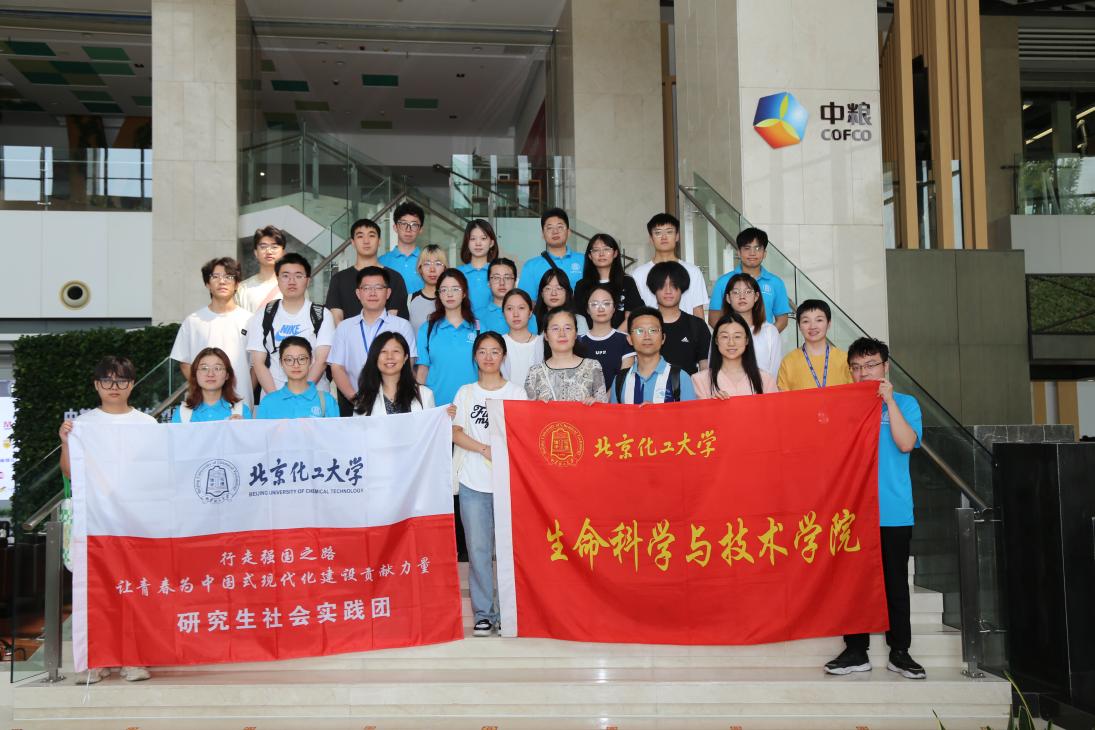
At COFCO Nutrition & Health Research Institute, the delegation focused on understanding COFCO's development history, business layout, and significant contributions to ensuring national food and oil safety. During the exchange session, Professor Zhang Guimin, the accompanying faculty member, introduced the School's development history, discipline development, and industrialization projects. Shen Naidong, Assistant Director of the Biotechnology Center, shared the institute's cutting-edge technologies and research updates. The Human Resources department presented recruitment needs and joint graduate training programs with universities, addressing questions raised by students.
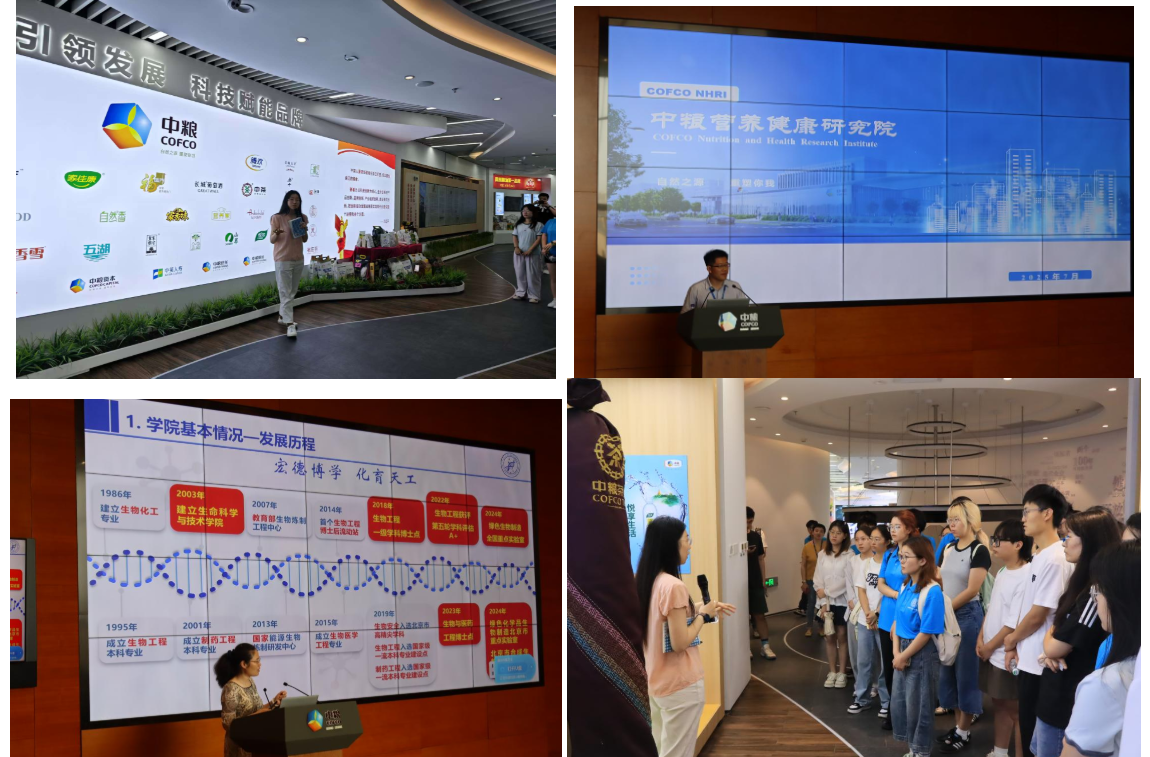
At the Beijing Synthetic Biology Manufacturing Industry Development Center in Future Science City, the delegation explored Beijing's strategic positioning to “accelerate the creation of a globally leading synthetic biology manufacturing innovation hub.” They gained in-depth insights into the city's specialized support policies for synthetic biology, the ecosystem of upstream and downstream enterprises in the industrial chain, and witnessed firsthand the cutting-edge applications of synthetic biology manufacturing technologies in healthcare, green energy, and other fields. This experience vividly demonstrated how technological breakthroughs drive industrial upgrading.
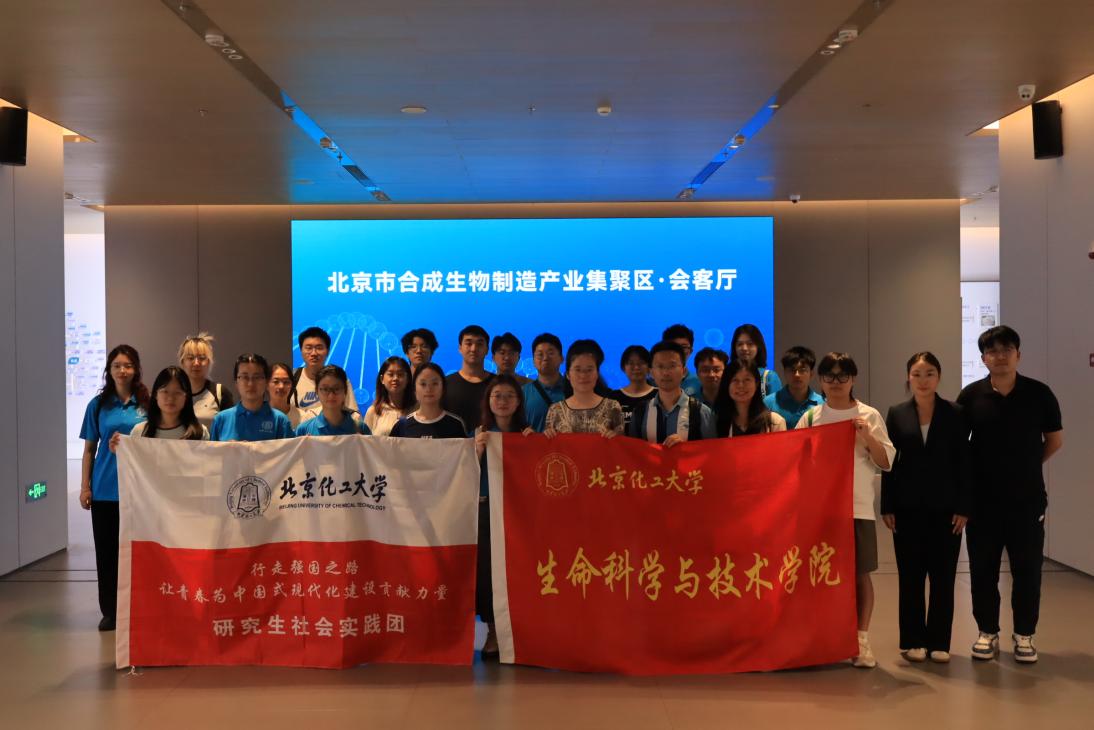
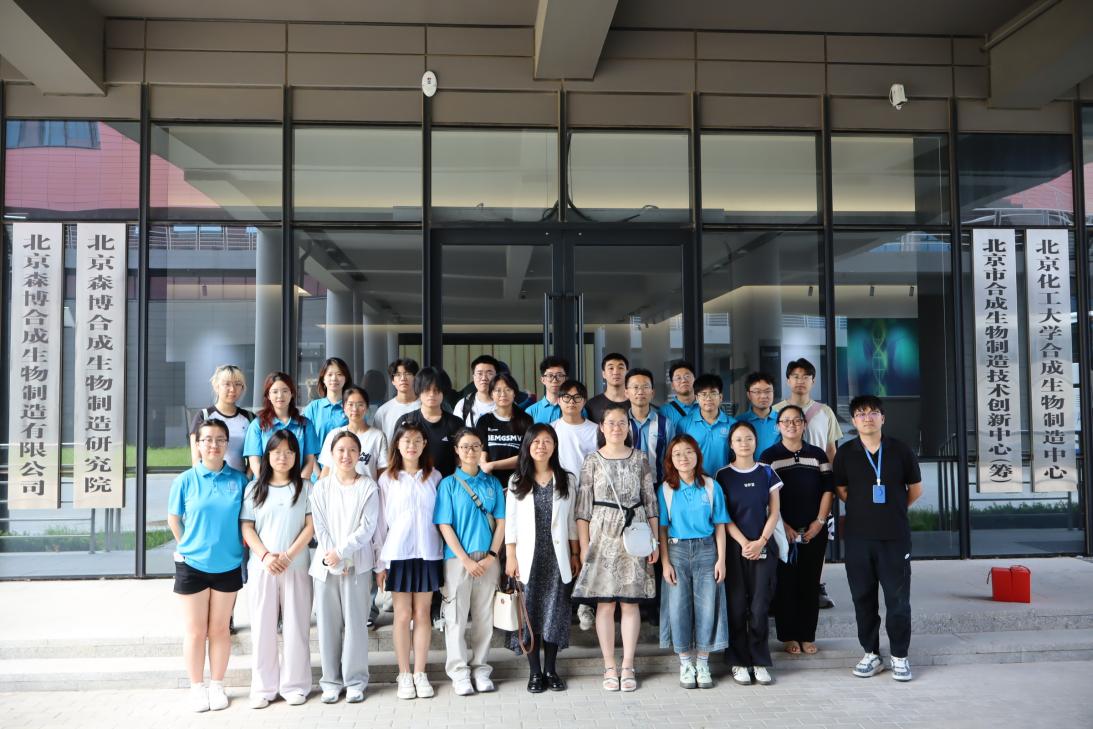
At Microgen Synthetic Biology Technology (Beijing) Co., Ltd., company representatives highlighted innovative biomanufacturing processes, particularly core breakthroughs like novel enzyme catalytic systems and continuous-flow biosynthesis processes developed using synthetic biology. The delegation focused on the company's leading technology for direct fermentation of allulose from glucose or crude sucrose. Through the tour, they also experienced the company's modern management processes and human-centered work environment.
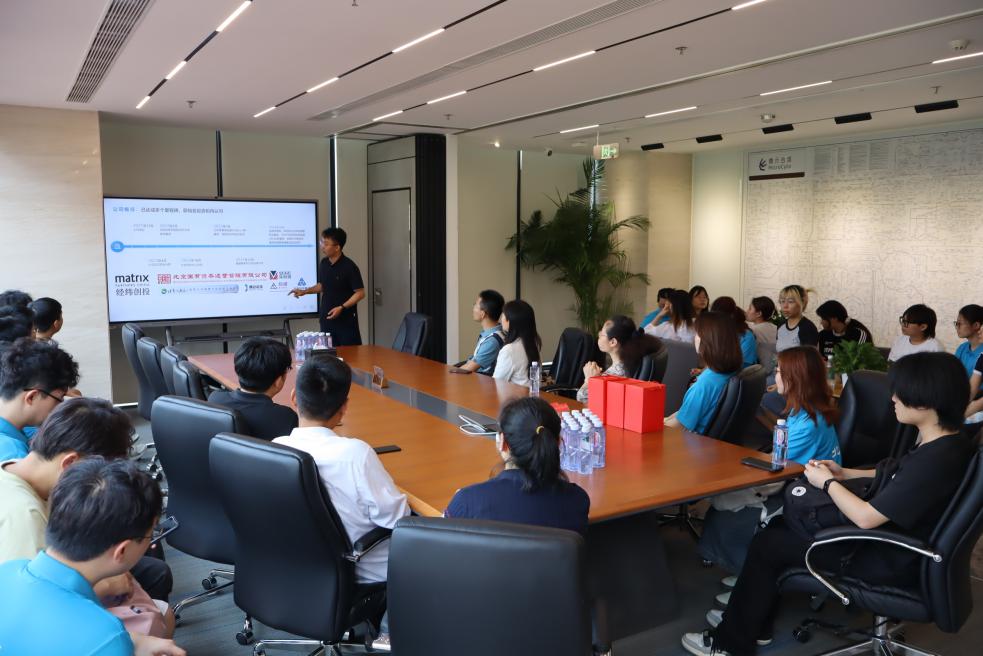
Through this summer social practice, participants gained a comprehensive, multi-perspective understanding of the pulse of the biotechnology and pharmaceutical industries. The collective responsibility of state-owned enterprises, the technological breakthrough vitality of private enterprises, and the resource aggregation momentum of innovation platforms collectively outline the ecological landscape of China's biomanufacturing industry—spanning from fundamental research to commercialization, and from technological innovation to industrial implementation. Participants gained profound insights: industry advancement requires state-owned enterprises to solidify foundational capabilities, private enterprises to seize market opportunities, and innovation platforms to drive industry-academia-research collaboration—all presenting career pathways for graduates.
Moving forward, our institute will deepen collaborations across sectors, empowering students to evolve into versatile professionals aligned with industrial demands through theory-practice integration. This approach will channel youthful energy into the high-quality development of China's bio-manufacturing industry.
